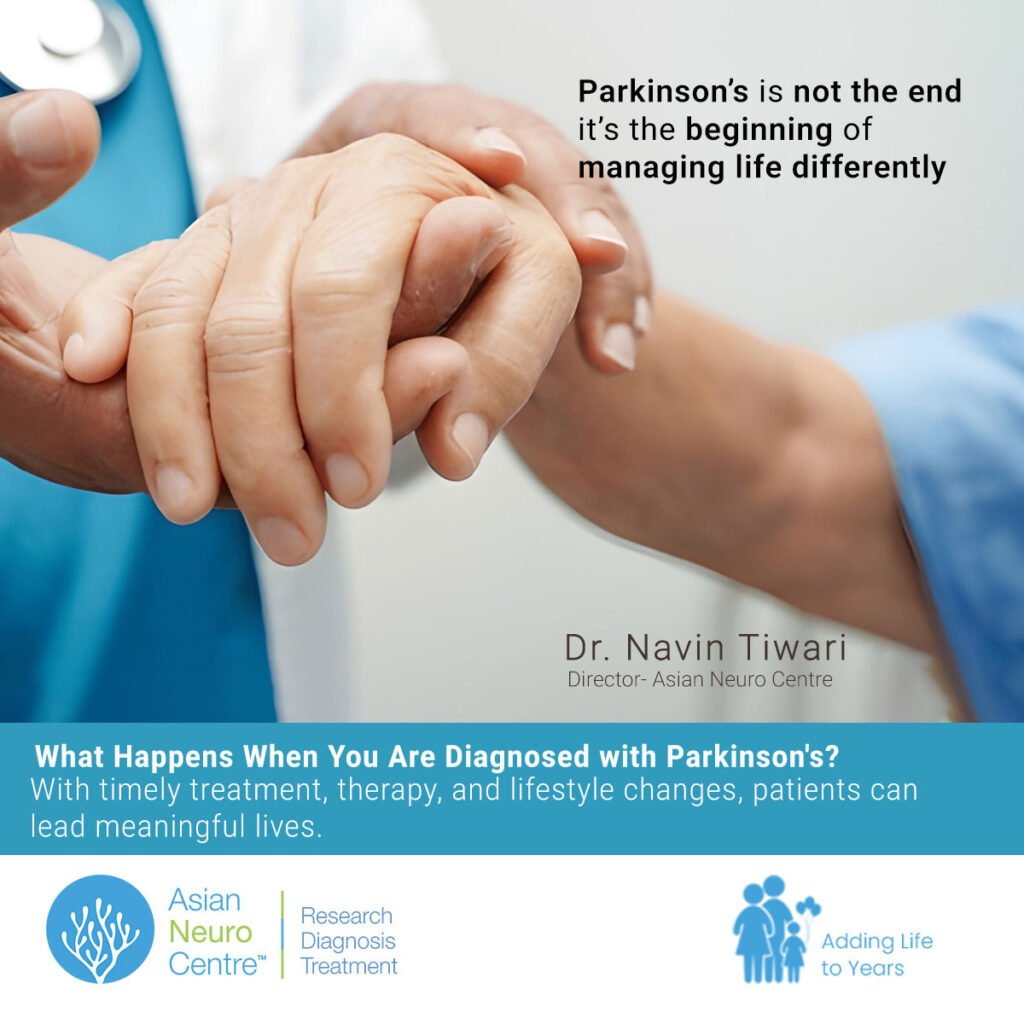- Have any questions?
- 911 12345 29
- info@asianneurocentre.com
What Happens When You Are Diagnosed with Parkinson’s?
Can Lifestyle Changes Delay Alzheimer’s?
September 18, 2025How Long Do People Live with Parkinson’s Diagnosis?
October 6, 2025What Happens When You Are Diagnosed with Parkinson’s?
- anxiety)
- brain function and parkinson’s
- coping with parkinson’s diagnosis
- daily challenges of parkinson’s
- deep brain stimulation (DBS)
- depression
- diet for parkinson’s disease
- dopamine agonists)
- dopamine deficiency
- early signs of parkinson’s
- emotional impact of parkinson's diagnosis
- exercise for parkinson’s patients
- family and caregiver support
- first steps after parkinson’s diagnosis
- future of parkinson’s treatment
- how parkinson’s is diagnosed
- life after parkinson's diagnosis
- living with parkinson’s disease
- medical tests for parkinson’s
- motor symptoms (tremors
- Movement Disorder
- myths about parkinson’s
- Neurological Disorder
- neurological disorders awareness
- neurologist consultation
- non-motor symptoms (sleep problems
- parkinson's disease stages
- Parkinson's disease Symptoms
- parkinson's early symptoms and diagnosis
- parkinson’s awareness and education
- parkinson’s care and support
- parkinson’s diagnosis process
- Parkinson’s Disease
- parkinson’s disease care and management
- parkinson’s disease research
- parkinson’s disease support
- parkinson’s exercise and diet tips
- parkinson’s lifestyle changes
- parkinson’s medication (levodopa
- parkinson’s medications and therapies
- parkinson’s patient stories
- parkinson’s stages explained
- parkinson’s support groups
- parkinson’s treatment options
- physiotherapy for parkinson’s
- rigidity
- slowness)
- understanding parkinson's disease
- What happens when you are diagnosed with Parkinson's?
- what to expect after parkinson’s diagnosis
What is Parkinson’s?
Parkinson’s disease (PD) is a progressive neurological disorder that affects movement. It develops gradually, often starting with a barely noticeable tremor in one hand.
The condition is caused by the loss of nerve cells in the part of the brain called the substantia nigra, which produces dopamine. Dopamine is a chemical messenger crucial for smooth, coordinated muscle function.
A lack of dopamine leads to the primary motor symptoms of PD, including tremor, rigidity (stiffness), bradykinesia (slowness of movement), and postural instability (impaired balance).
How is Parkinson’s Diagnosed?
Currently, there is no single definitive test for Parkinson’s disease. Diagnosis is primarily clinical, meaning it is based on a detailed medical history, a review of symptoms, and a thorough neurological and physical examination performed by a specialist, typically a neurologist or a movement disorders specialist.
The doctor will look for the characteristic motor symptoms. They may ask the patient to perform simple tasks like walking, writing, or tapping their fingers to assess movement, rigidity, and coordination. Blood tests and imaging scans (like MRI) may be used to rule out other conditions that can mimic Parkinson’s symptoms.
In some uncertain cases, a specialist may use a dopamine transporter (DaT) scan, which can visualize the brain’s dopamine system, or may observe the patient’s response to Parkinson’s medications to help confirm the diagnosis.
Because symptoms often start subtly, a diagnosis can sometimes take time to confirm, with specialists often recommending regular follow-up appointments.

What Happens When you are diagnosed with Parkinson’s?
Receiving a diagnosis of Parkinson’s can evoke a wide range of intense emotions, including shock, denial, anxiety, anger, or even a strange sense of relief at finally having an explanation for unexplained symptoms. This is a life-changing event, and taking time to process the news is essential.
The diagnosis marks the start of a proactive journey in managing the condition:
- Building Your Healthcare Team: The first critical step is to establish care with a Movement Disorders Specialist if possible, as research suggests they can significantly improve care and outcomes. This team will also likely include physical, occupational, and speech therapists, and possibly a mental health professional or social worker to address non-motor symptoms.
- Starting Treatment and Education: While there is currently no cure, effective treatments exist to manage symptoms. The specialist will discuss medication options, such as Levodopa, which replenishes the brain’s dopamine supply, and other drug classes. Patients and their families are strongly encouraged to become educated about the disease, its progression, and treatment options.
- Prioritizing Lifestyle and Exercise: A cornerstone of living well with PD is regular, consistent exercise. Physical activity—including aerobic, strength, balance, and flexibility exercises—is often recommended immediately, as it is believed to help maintain mobility and slow functional decline. Lifestyle adjustments, such as healthy eating and focusing on sleep quality, are also important.
- Emotional and Social Support: Open communication with family and friends is vital. Many people find immense value in joining Parkinson’s support groups, which offer a community of understanding and shared experience. It is important to treat mood changes like depression and anxiety, which are common non-motor symptoms.
Conclusion
A diagnosis of Parkinson’s is not an endpoint; it is the beginning of a new journey defined by management, adaptation, and resilience.
By taking a proactive approach—seeking expert care, adhering to treatment, committing to exercise, and building a strong support system—individuals can work to maintain their quality of life and continue to live well with the condition.
Dr. Navin Tiwari
Consulting Neurologist
